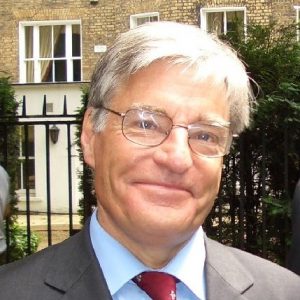After studying Law at Southampton University, Philip was commissioned into the RAF Regiment. After six years he left to join the Parachute Regiment, with whom he served for a further 20 years. He saw active service in Dhofar, Northern Ireland and as a company commander in the Falklands War, when he was Mentioned in Despatches following the battles of Goose Green and Wireless Ridge. He commanded 10 PARA (V), a TA battalion based in London, and left the Army in 1994, to start a career in business. In 2002 he started and managed a VC-backed software business, from which he retired in 2011.
Since being introduced to rock climbing during a CCF camp on Skye, Philip has had a lifelong passion for mountaineering. He has climbed throughout the UK, the Alps and North America. In 1974, he made the first ascent of Lamjung Himal (22,990 feet). In 1981, he was deputy leader of the first expedition to China since the 1930s in 1981. This was also his honeymoon, and it remains a source of constant surprise that he is still married to the girl who accompanied him then. He was a member of the successful 1976 Army Mountaineering Association expedition to Everest, helping to recover the summit pair from 28,000 feet. In 1992, he led a TA attempt to secure a first British ascent of Everest in Winter, establishing The Ulysses Trust in conjunction with this project titled DARC STAR. A trustee since 1993, he became executive Vice Chairman of The Ulysses Trust after retiring from his business.
Phil says: “When we started to plan the TA Everest in Winter expedition, we were surprised to discover that there was no Services support at all for such ventures by the Volunteer Reserve and Cadets. The aim of setting up the Trust was to fill that gap, to help our expedition, and for the long-term. That early experience on Skye changed my life, and it remains deeply satisfying that, as a legacy of the Everest in Winter expedition, The Ulysses Trust continues to help other young people, particularly those with fewer advantages than I had, to find themselves.”

